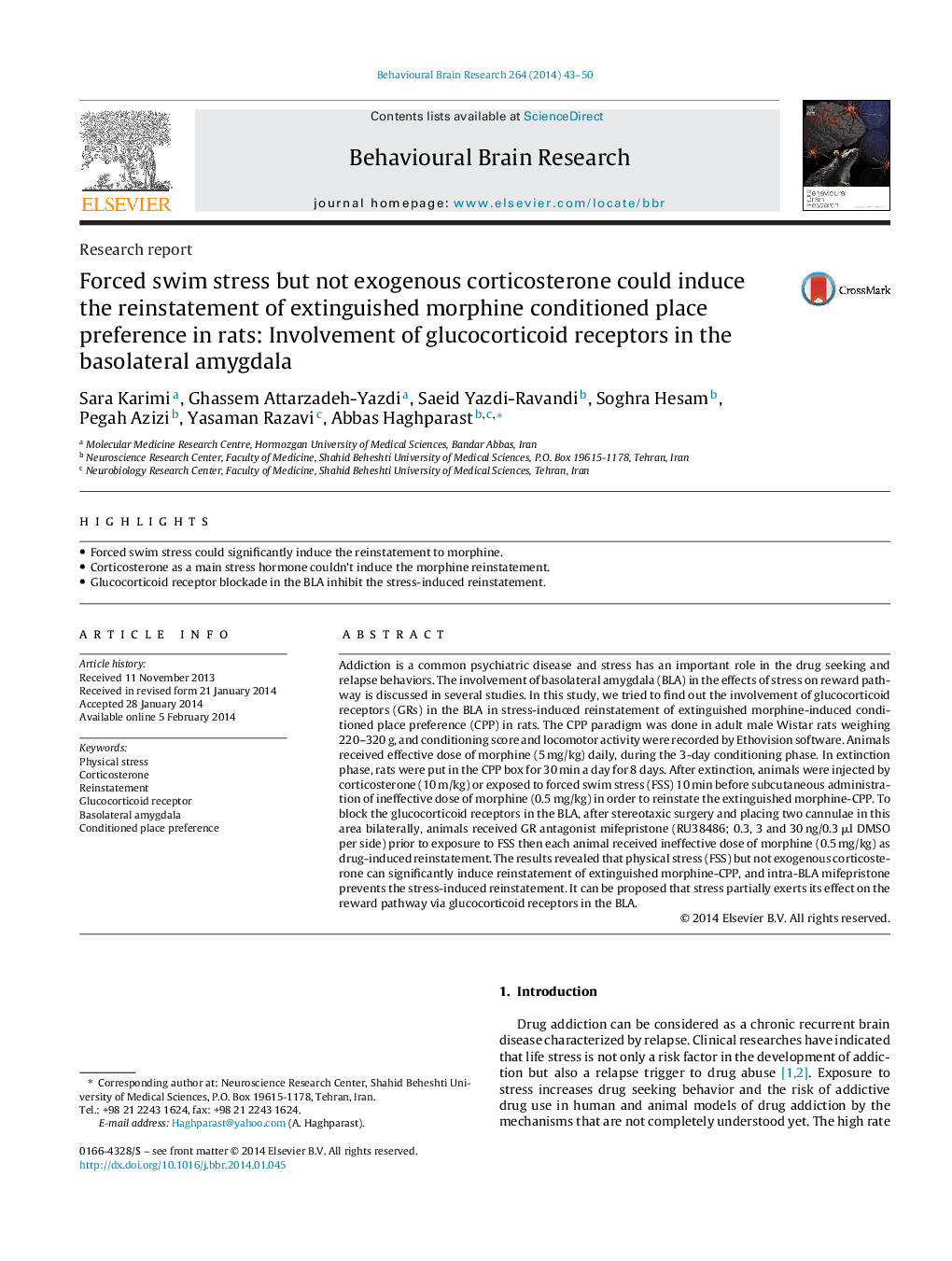| Article ID | Journal | Published Year | Pages | File Type |
|---|---|---|---|---|
| 6258247 | Behavioural Brain Research | 2014 | 8 Pages |
â¢Forced swim stress could significantly induce the reinstatement to morphine.â¢Corticosterone as a main stress hormone couldn't induce the morphine reinstatement.â¢Glucocorticoid receptor blockade in the BLA inhibit the stress-induced reinstatement.
Addiction is a common psychiatric disease and stress has an important role in the drug seeking and relapse behaviors. The involvement of basolateral amygdala (BLA) in the effects of stress on reward pathway is discussed in several studies. In this study, we tried to find out the involvement of glucocorticoid receptors (GRs) in the BLA in stress-induced reinstatement of extinguished morphine-induced conditioned place preference (CPP) in rats. The CPP paradigm was done in adult male Wistar rats weighing 220-320 g, and conditioning score and locomotor activity were recorded by Ethovision software. Animals received effective dose of morphine (5 mg/kg) daily, during the 3-day conditioning phase. In extinction phase, rats were put in the CPP box for 30 min a day for 8 days. After extinction, animals were injected by corticosterone (10 m/kg) or exposed to forced swim stress (FSS) 10 min before subcutaneous administration of ineffective dose of morphine (0.5 mg/kg) in order to reinstate the extinguished morphine-CPP. To block the glucocorticoid receptors in the BLA, after stereotaxic surgery and placing two cannulae in this area bilaterally, animals received GR antagonist mifepristone (RU38486; 0.3, 3 and 30 ng/0.3 μl DMSO per side) prior to exposure to FSS then each animal received ineffective dose of morphine (0.5 mg/kg) as drug-induced reinstatement. The results revealed that physical stress (FSS) but not exogenous corticosterone can significantly induce reinstatement of extinguished morphine-CPP, and intra-BLA mifepristone prevents the stress-induced reinstatement. It can be proposed that stress partially exerts its effect on the reward pathway via glucocorticoid receptors in the BLA.
